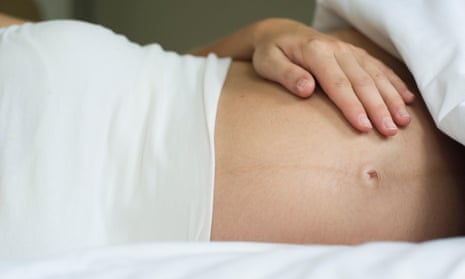A cross-party group of MPs are seeking to change Britain’s abortion laws to ban late terminations that are carried out on the grounds of minor physical abnormalities.
The abortion (cleft lip, cleft palate and clubfoot) bill, which is led by the Conservative MP Fiona Bruce and supported by 13 MPs, will be presented in parliament on 3 June.
Cleft lip, cleft palate and club foot can be corrected shortly after birth with minor surgery and physiotherapy but in some cases, the first two conditions can be indicative of other, serious conditions.
One mother, Sophie Caldecott, was offered abortions throughout her pregnancy after her 20-week scan showed her daughter had clubfoot.
“My daughter is now six and you can’t tell that there was anything wrong with her feet or ankles now, thanks to very minor surgery in her first few months and physiotherapy,” said Caldecott, “But when the sonographer discovered the problem, she told my husband and me that we could have our money back for the scans, and implied it was likely we’d want an abortion.”
Caldecott was offered another abortion at her next scan, five weeks later. “On the one hand, medical professionals were reassuring me that this was a minor birth defect that could be easily corrected, yet on the other, I was being offered an abortion after the usual 24-week cut-off point as though my child had a severe and life-altering disability.”
But Clare Murphy from the British Pregnancy Advisory Service has criticised the bill. “While this bill has no chance of progressing, it is a deplorable attempt to weaponise an extremely small number of terminations and politicise the heartbreaking situation of women faced with making these decisions about what are often much longed-for pregnancies,” she said.
Under the Abortion Act 1967, a woman can have an abortion after 24 weeks only if she is at risk of grave physical and mental injury, or there is a severe foetal abnormality.
But Bruce, whose son’s clubfoot was corrected with surgery and physiotherapy, said the law is being interpreted as though the 24-week limit does not apply to children diagnosed with the conditions.
“It’s now been 30 years since parliament last properly reviewed the law on abortion for disability,” she said. “It’s time our legislation caught up to reflect society’s positive change in attitudes towards those born with disabilities, and medical advances in the intervening years.”
According to official abortion statistics for England and Wales, there were aout 75 abortions between 2011 and 2018 for the principal condition of either cleft lip or cleft palate.
But European researchers have raised concerns about under-reporting, saying more than 10 times as many take place for cleft lip than are recorded in official statistics.
In 2013 a review by Eurocat, an organisation that collects data about congenital abnormalities across 23 countries, found that 157 babies were aborted in the UK with these conditions between 2006 to 2010, despite official figures only recording 14 such abortions. Eurocat also found that 205 babies with clubfoot were aborted in England and Wales in the same period.
Abortion is classed by government as a matter of conscience, with politicians allowed to vote according to their moral, ethical or religious beliefs.










